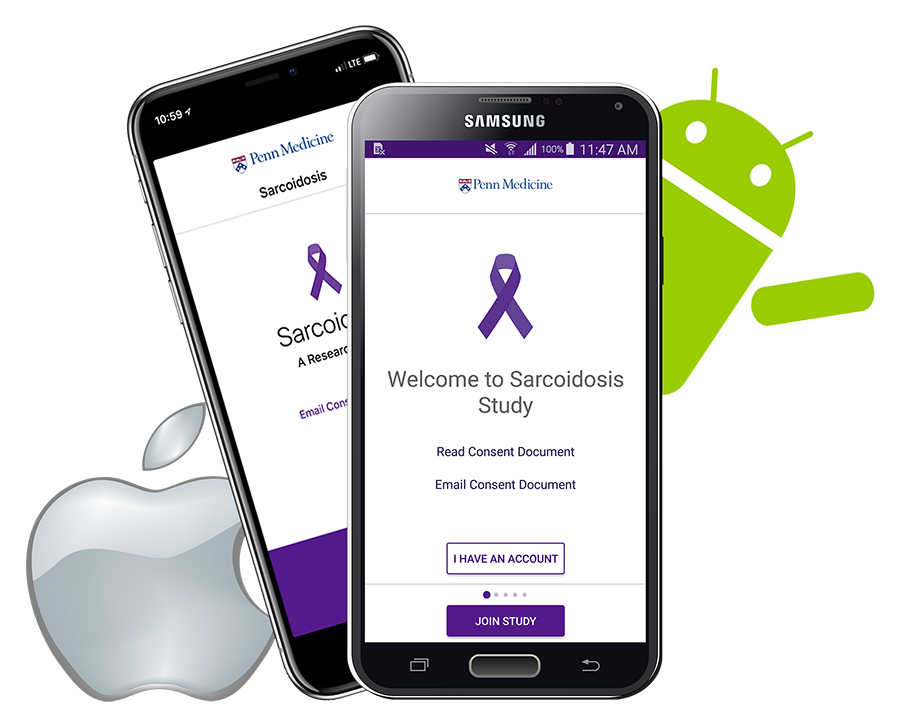 We received a great deal of feedback asking when the app would be available on android devices. It has always been our goal to have the app available to everyone to give equal access to these sarcoidosis resources, as well as to help sarcoidosis researchers obtain the most accurate information. This will ultimately expand our understanding of the impact of sarcoidosis on patients.
We received a great deal of feedback asking when the app would be available on android devices. It has always been our goal to have the app available to everyone to give equal access to these sarcoidosis resources, as well as to help sarcoidosis researchers obtain the most accurate information. This will ultimately expand our understanding of the impact of sarcoidosis on patients.
We are happy to announce that the Sarcoidosis App is now available on Android. Those with android phones such as the Google Pixel and Samsung, among others, can now visit the Google play store and download the app. Or, simply click the icon below.
Thank you for your feedback. You opinion matters and is indeed extremely important to us. Hearing from you allows us to improve the app and our service, but most of all, it is a vital part of our goal to provide you with the best support. Thank you.
Penn Medicine launched the first ever Apple Research kit app for sarcoidosis patients early in 2017. Spearheaded by Dr. Misha Rosenbach, a member of FSR’s Scientific Advisory Board, the app aims to not only provide patients across the country with instant access to disease-specific resources on their phones, but also to connect researchers to this effort by providing more detailed insight on the daily lives of sarcoidosis patients. If patients choose to opt-in to certain features of the app, their data tracked in the app can be reported to a research database that, in addition to optional monthly surveys, allow researchers to track patterns of the daily burdens that patients face. A review of the app on Eureka Alert notes:
“Among potential queries the technology will allow investigators to explore: When sarcoidosis is flaring, are patients walking fewer steps? Do they miss work? Does their disease flare after a week’s worth of sunny days? Does geographic location affect symptoms? Is there a seasonal variability? How quickly do patients respond to treatments?”
Another review was written by Johns Hopkins cardiologist Satish Misra, who also is a founding partner and editor of iMedicalApps. He praised the app’s ingenuity in recruiting rare disease patients- typically a tough population to gather massive information on because of the rarity of the disease and lack of physicians with a deep understanding of the disease. While he is slightly skeptical about the longevity of the app’s success based upon fading user engagement from other Researchkit apps like “Asthma Health,” he remains optimistic because “things are different with a rare disease, where the sense of community among patients may be stronger.”
Daniel O’Connor, who developed the app with Dr. Rosenbach, says they hope to make this the largest study on sarcoidosis ever, with the help of technology. By using a mobile platform, they have the potential to reach and follow up with more patients than any clinical trial before. Already they’ve had over 1220 downloads of the app, half of whom have completed the entire process of giving informed-consent and are taking regular surveys that are sent back to Penn Medicine. Should this project continue to grow as it has, it is on track to become the largest study of its kind within a year. If user engagement stays up, the researchers will have reason to continue expanding the app so it’s accessible to more people, perhaps even worldwide.



